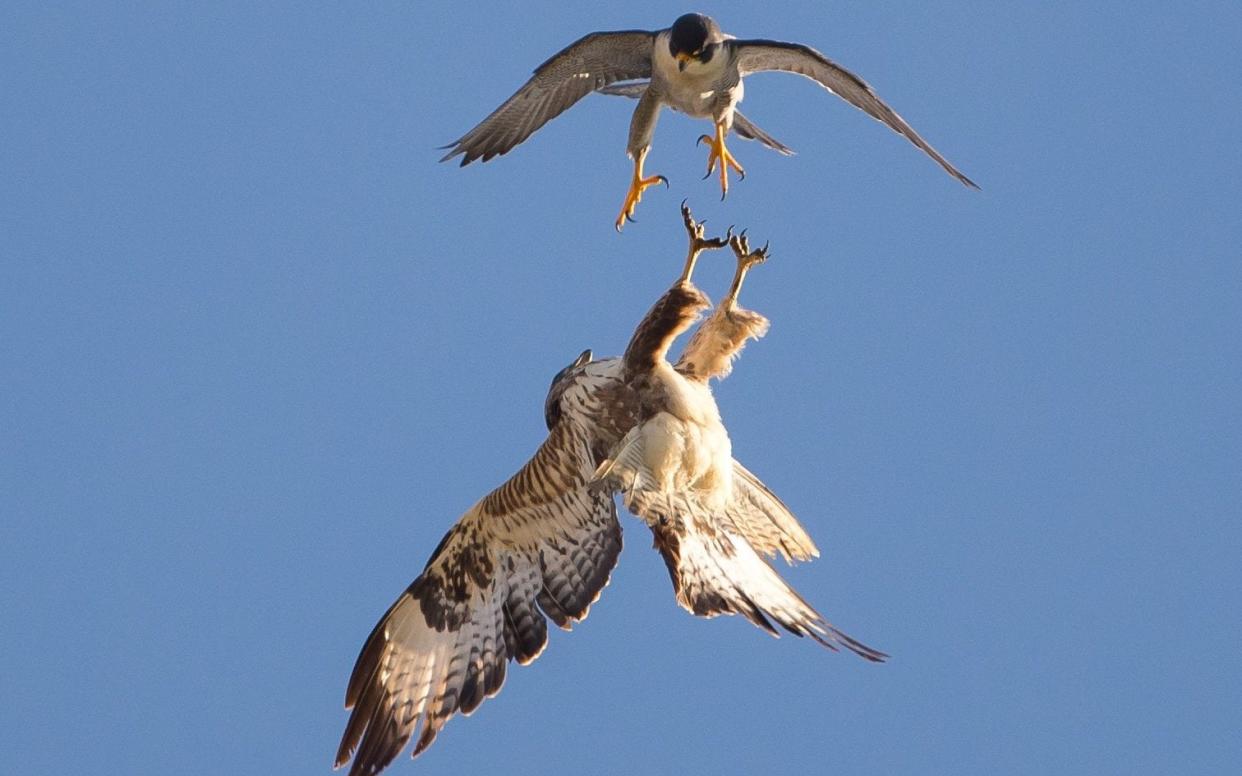Peregrine falcon-style attack drones funded by Government to prevent airport shutdowns

Peregrine falcon-style attack drones are due to be funded by the Government in a bid to avoid airport shutdowns.
The Ministry of Defence (MoD) announced it has awarded nearly £2 million to 18 private sector projects - including one for rapid capture-drones that mimic the birds of prey - aimed at taking down “hostile and malicious” drones.
The grants come almost a year after multiple sightings of a drone shut down Gatwick Airport for three days.
One of the projects receiving MoD funding is by Oxford-based company Animal Dynamics, which is developing swarms of light drones that will be able to intercept and capture hostile drones without causing them to crash out of the sky.
The company has studied the tactics of peregrine falcons, which scan for their prey at altitude before dive-bombing at speeds reaching 200mph and intercepting them midair.
Alex Caccia, the company’s CEO, told the Telegraph it aimed to try and copy the natural ‘algorithm’ peregrines have evolved to hone in on prey at speed.
He said: “The approach we are taking comes from a very long-standing set of studies done by my co-founder Adrian Thomas, a professor of bio-mechanics (at Oxford University), looking at the way birds of prey optimise their attack strategies.
“Evolution has produced some very elegant and effective ways of controlling that process and that is what we are basing our control system on.”
Each of the companies awarded MoD grants, which have come through its Defence and Security Accelerator programme (DASA), received almost £100,000 to prove their concepts.
Other companies to be awarded grants were defence behemoth BAE Systems, to develop electromagnetic fields that can down drones, and University College London to create computer programmes that can identify drones in flocks of birds.
David Lugton, DASA competition technical lead, said: "The threat from Unmanned Air Systems (UAS) has evolved rapidly and we are seeing the use of hostile improvised UAS threats in overseas theatres of operation.
“There is a similar problem in the UK with the malicious or accidental use of drones becoming a security challenge at events, affecting critical infrastructure and public establishments; including prisons and major UK airports.”
Alongside established companies some of the grants have also gone to UK start-ups, such as Airspeed Electronics Ltd. The one-man company is looking to develop a system of acoustic sensors sensitive enough to locate and track approaching drones.
The company's founder Ben Cook, a 43-year-old former BAE engineer, said drones tended to make a distinct sound due to their rotas, which theoretically meant they could be tracked acoustically.
He said: "Sound has been used to detect things for a long time. If go back to World War Two there are some big concrete structures on the East of England and they would stick a guy in them to listen for German aircraft coming over the sea.
"We are automating that process and deploying it on a wide area."

